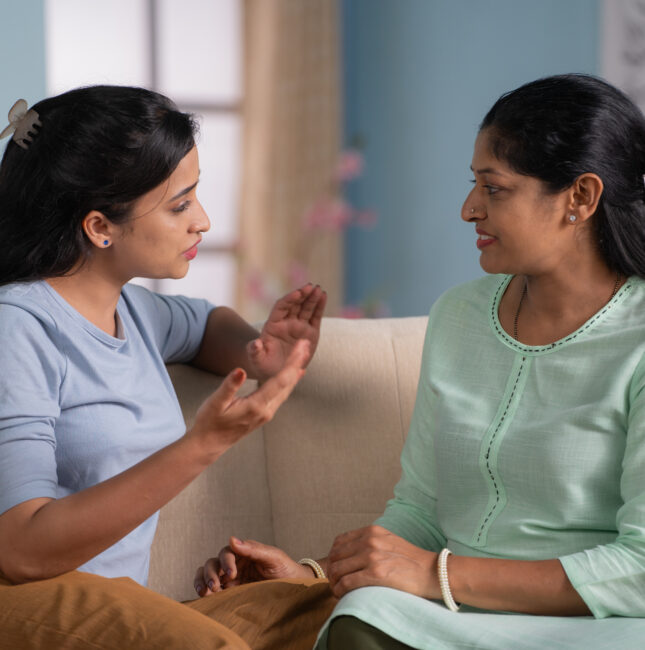Surge in domestic violence during COVID-19
May 20, 2020
The COVID-19 pandemic has impacted the world in ways we could never have imagined. There have now been nearly 5 million cases of the virus reported worldwide, and more than 325,000 deaths. The health system in many countries is struggling to deal with the crisis, and around one-third of the world’s population has been under some kind of lockdown as governments try to control the spread of the disease.
The Australian government introduced stay-at-home restrictions in March to prevent COVID-19 from taking hold. Rules varied from state to state, but the majority of the population was stuck at home, with business and public places closed, and gatherings banned.
Unfortunately, one consequence of this has been a spike in domestic and family violence cases, worsening the already dire issue of domestic violence in Australia.
Increase in domestic violence cases
Figures indicate a sharp rise in domestic and family violence cases in Australia since the introduction of social distancing and other restrictions in response to the COVID-19 pandemic. It is difficult to know the exact numbers of family violence incidents that are occurring behind closed doors; however, we have seen a number of worrying indicators.
The number of Google searches related to domestic violence in NSW jumped by 75% in March, as lockdown rules were introduced across the state. Family violence support services and activist groups have also reported a rise in cases. Women Support Services South Australia (WSSSA), for example, registered 69 new cases in their Migrant Women’s Support Program during February and March, around double the normal volume for that time period. In Queensland, emergency departments have noted an increase in “significant injuries related to domestic violence” according to this report from the ABC.
This is part of a global pattern, with reports of a sharp rise in domestic violence incidents in many countries, including Germany, Italy, the UK, Brazil and China.
Why has there been an increase?
The recent restrictions have put victims of domestic and family violence at risk in a number of ways. Firstly, victims are at closer proximity to their abusers for a much greater proportion of the time. In many cases, they are locked in with the perpetrator all day, every day.
One characteristic of family violence is that the abuser isolates the victim from family and friends. While victims may have developed strategies to reach out, recent lockdown regulations meant that they were completely isolated and cut off from all support. They are also unable to leave the house even for a short break and get some respite from the situation.
Additionally, the coronavirus pandemic has led to an increase in some of the risk factors that contribute to domestic violence. Research shows that financial stress and unemployment are both risk factors that contribute to family violence. With many Australians facing tough times and job losses at the moment, incidents of abuse and violence are more likely to occur. Another risk factor from domestic violence is alcohol, and we also saw more people drinking heavily during isolation, which likely contributed to the rise in incidents.
It is also more difficult for victims to reach out for help: They cannot pick up the phone and call a friend or a support service for fear that their abuser will hear them. Even as many support services report an increase in domestic violence cases, the number of phone inquiries has dropped. The domestic violence support line in Victoria has seen a 30% decrease in phone calls since the beginning of social distancing rules.
Although authorities in several states have recently announced that restrictions are being gradually relaxed, this is unlikely to reverse this trend. With some state still under lockdown and some degree of social distancing guidelines in place in every state, these issues will continue.
If you or someone you know is experiencing violence, please contact us on 1800 324 924. We offer a number of services that can help www.catholiccaredbb.org.au/dvsupport.
More news stories like this one
NAIDOC Week 2025 – The Next Generation
CatholicCare is proud to celebrate NAIDOC Week y amplifying the voices, stories, and aspirations of Aboriginal & Torres Strait Islander people. This year’s celebrations are all about empowering the next generation of leaders - our young people who carry culture forward with pride, resilience and hope.
Read MoreTrain adventures give participants choice & control
When participants and their parents have their voices heard, wonderful things can happen. The words ‘choice and control’ are bandied about a lot in the disability space, but this story shows how crucial they are to a person’s wellbeing and happiness.
Read MoreDavika emerges from a web of violence
As they grew up, the two friends went their separate ways. Davika had settled into life as a single mum in India, and Priyanka had moved to Australia to marry an Australian man. Life, as Davika knew it, changed forever when Priyanka returned to India for a holiday with her husband and her husband’s Australian brother, Steve.
Read More


